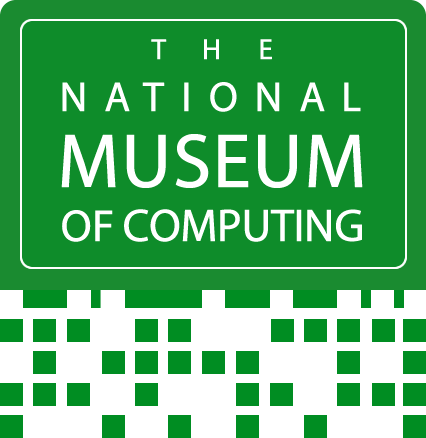The National Museum of Computing set to reopen on May 28th following months of closure
/The perfect day out for families and enthusiasts
Tickets must be pre-booked as part of new Covid guidelines
As part of their opening season, the National Museum of Computing is launching a new competition inspired by the BBC Micro – to create a piece of music
This is one of several exciting events set to take place over the summer
The National Museum of Computing (TNMOC), an independent charity, has announced it will reopen its doors to the community and public on Friday, May 28th, following months of closure. Throughout the pandemic, the museum worked hard to engage with the public through virtual events, talks and online guided tours.
On the museum's opening weekend, guests will be treated to various socially distanced activities, allowing them to experience the entire collection in safety while still interactive and engaging. The activities are all child-friendly, including:
Bring a cardboard computer you have made, and you will receive a free entry for your next visit
Robotics and programming-based practical STEM activities- throughout the day - Sphero kit
Women in Computing trail exploring the impact of women in computing through the museum's various exhibitions
On Saturday 29th, there will be a full outdoor display by the Home Guard re-enactment group that will be around all-day
As part of their opening season, The National Museum of Computing is launching its BBC Micro @ 40 competition, where contestants will create an original piece of music for the introduction screen to a fictional game using a Raspberry Pi. The competition is part of TNMOC’s year of events celebrating the 40th anniversary of the iconic BBC Micro. Entries can be submitted individually or as part of a group; the deadline submission is August 19th, with winners announced on August 25th.
The museum, which is home to the largest collection of working historic computers in the world, will also have functional displays – demonstrated by its expert volunteers – where visitors will once again be able to witness famous machines in action. The National Museum of Computing’s collection includes a working reconstruction of the Turing-Welchman Bombe – the electro-mechanical device used to decrypt Enigma-encrypted Axis power comms in World War II – and a rebuild of Colossus, the machine used to break the Lorenz cipher used by the German Army during World War II.
On the reopening, Museum Director, Jacqui Garrad, commented: “We are so excited to finally be able to welcome the public back into the National Museum of Computing. It’s been a difficult year, and we’ve worked hard to continue to conserve, educate and engage with our growing community. We’ve got a lot planned and hope this summer will be our best one yet; we can’t wait for the public to see what we have in store.”
Notes to the editor
Other in-person activities which are scheduled for the summer include:
The unveiling of a brand-new piece of bespoke commissioned artwork by Justin Eagleton, along with an artistic workshop for members of the neurodiverse community, June 18th & 19th
39 of the best: Women of SIGINT trained and armed for undercover war in France, June 23rd – a talk by Dr. Kate Vigurs on 39 secret agents who were women selected from all walks of life who risked betrayal and death for freedom
TNMOC STEM Bytes, every weekend – weekend activities for children which include programming activities, Sphero robots and various other hands-on challenges
Along with the in-person activities, the museum also has several exciting virtual events scheduled for the summer:
Digital Dads Retro Games Tournament, Friday 18th June - Sunday 20th June - celebrating Father's Day 2021 and part of the BBC Micro 40th anniversary, the online tournament will feature the BBC Micro games Chuckie Egg, Snapper and Rocket Raid. Perfect for a fun, family-friendly competition.
Alan Turing: “The criminal who won the war?”, Saturday 29th May – Alan Turing’s nephew Dermot Turing explores the inadequacy of the standard narrative and invites us to reappraise the legacy of his famous relative.
Tech’s first female entrepreneur – from making her millions to Alan Turing, Thursday 17th June – take a look at Dora Metcalf’s life, a pioneer for women in technology, who helped supply Bletchley Park with Bombes to crack complex German messages
You can find out more about The National Museum of Computing’s diverse array of events here: www.tnmoc.org/events
About The National Museum of Computing
The National Museum of Computing brings to life the history and ongoing development of computing for the enjoyment and benefit of the general public and specialists. The museum combines a distinctive approach to engagement with an emphasis on British computing heritage and ongoing innovation. TNMOC acquires, conserves, restores and rebuilds historic computing machinery. Our approach is furthered through a process of engagement, with the display and demonstration of historical systems. The museum runs a highly successful learning programme for schools and colleges and introduces computer coding to young people to help inspire the next generation of computer scientists and engineers. The museum also runs a popular, ongoing program of festivals, lectures and interpreted displays and interactive events.



